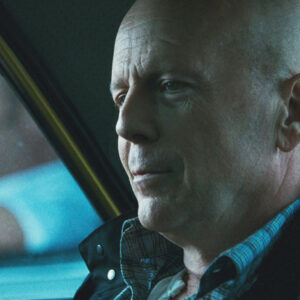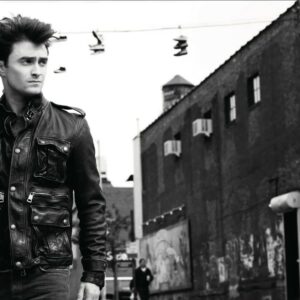Die Hard (1988), directed by John McTiernan, is widely regarded as one of the quintessential action films of the late 20th century, a genre-defining classic that helped solidify Bruce Willis as an action star. While it is frequently celebrated for its fast-paced action, explosive set pieces, and taut suspense, Die Hard is also a film about transformation—both external and internal. At the heart of this transformation is the psychological journey of its protagonist, John McClane. Played by Willis, McClane begins the movie as a detached, cynical New York cop struggling with his personal life and ends it as a fully realized, emotionally invested hero. This article explores McClane’s psychological evolution throughout the film, highlighting key scenes and moments that mark his shift from isolation to connection, from emotional detachment to self-sacrifice.
Initial Psychological State – Detached and Cynical
At the outset of Die Hard, John McClane is not presented as the archetypical hero. Unlike the rugged, invincible action heroes that dominated the genre at the time, McClane is a flawed, complex character with emotional baggage. He is a seasoned cop who has seen it all but who is also emotionally distant, especially from his wife, Holly (Bonnie Bedelia). Their strained marriage is evident from the moment McClane arrives in Los Angeles, the setting for the majority of the film’s action. McClane is there to try and reconcile with Holly, who has moved to California for her job while he remains stationed in New York. However, McClane’s attempts at reconciliation are marred by his cynicism and inability to open up emotionally. He’s not ready to confront the deeper issues that have created a rift between him and Holly—chief among them, his detachment and his failure to prioritize his family.
In the early scenes of the film, McClane exhibits the kind of emotional withdrawal that characterizes many “tough cop” protagonists. He avoids directly addressing the underlying emotional issues in his marriage, opting instead to mask his vulnerabilities with humor, sarcasm, and bravado. When McClane arrives at the Nakatomi Plaza for a Christmas party where Holly is present, he doesn’t seem overly concerned about the impending terrorist attack or the danger surrounding him. His first instinct, even as the chaos unfolds, is to focus on self-preservation and his own sense of personal toughness, suggesting a man who is both emotionally distant and stuck in a defensive, self-reliant mindset.
First Clue of Change – The Plane Scene
McClane’s transformation begins subtly as soon as he arrives in Los Angeles. One of the first scenes that hints at his emotional struggle and sets the stage for his eventual growth is the moment he boards the plane. In a brief exchange with a fellow passenger, McClane reveals the strain in his relationship with Holly. He’s a man who is clearly out of his comfort zone, both physically (as he’s in a foreign city) and emotionally (as he grapples with the growing realization that his marriage may be falling apart). In the scene, he confesses that he has been living alone in New York since Holly’s move and that he’s not sure how to fix things.
Though this moment is fleeting, it highlights McClane’s internal conflict. While he may be a seasoned cop, he is also a man struggling to reconnect with his family. It’s clear that McClane has not yet made peace with his emotional vulnerability. The plane scene functions as an early clue that McClane is about to embark on a journey—one that will force him to confront both his fears and his emotional baggage. His reaction to the unfolding crisis will reveal a great deal about his true character.
The Milestone Scene – The Glass Cutting Scene
The psychological turning point in Die Hard comes with one of the film’s most iconic sequences: the glass-cutting scene. After a tense shootout with the terrorists, McClane is forced to run barefoot across a field of broken glass. Physically, the scene is excruciating for McClane, as the shards of glass cut into his feet, leaving him bloodied and vulnerable. However, the emotional significance of the scene transcends its physicality.
Up until this moment, McClane has relied on his toughness and cynicism to protect himself, both from the terrorists and from the deeper emotional issues he has been avoiding. The glass-cutting scene, however, strips away this façade. The pain he experiences as he walks barefoot through the glass forces him to confront his vulnerability. He is no longer just the tough, invulnerable cop; he is a man in pain, physically and emotionally, and this moment represents the start of his psychological shift.
The scene is symbolic in several ways. On a physical level, McClane’s injuries signify that he is not immune to suffering. He cannot simply avoid the consequences of his actions, nor can he continue to push through life without acknowledging his personal flaws and vulnerabilities. On a psychological level, the glass-cutting moment represents McClane’s acknowledgment of his own humanity. It is a painful but necessary step in his evolution, one that propels him toward a deeper emotional engagement with the people around him, particularly with his wife.
The Transformation – From Isolation to Connection
As the film progresses, McClane’s psychological transformation becomes more pronounced. He begins to evolve from the emotionally detached cop we met at the start into a man who is willing to take risks for others, including the hostages being held by the terrorists. One of the most telling moments of this transformation occurs when McClane risks his life to protect the hostages, despite his own physical injuries. His selflessness in these moments underscores his shift in priorities—from self-preservation to the preservation of life.
Moreover, McClane’s relationship with Holly becomes a central driving force in his actions. Throughout the film, we see McClane’s growing realization that he needs to fight not just for his own survival, but for the sake of his family. The terrorists, led by Hans Gruber (Alan Rickman), represent an external threat, but they also serve as a catalyst for McClane’s internal change. The stakes of the situation force McClane to reevaluate his values and rediscover his emotional investment in his marriage.
In one particularly poignant moment, McClane is on the phone with Holly, and he speaks to her with genuine vulnerability and affection—something we have not seen from him earlier in the film. McClane’s willingness to express his feelings marks a significant shift from his earlier detachment, revealing that he has moved beyond the cynicism that once defined him. His emotional connection to Holly becomes one of the key motivators in his fight against the terrorists, and his ability to openly express his love for her signals his personal growth.
The Final Scene – Redemption and Heroism
By the time the film reaches its conclusion, John McClane has undergone a full psychological transformation. No longer the emotionally distant, isolated cop, McClane is now a man who has rediscovered his sense of purpose and connection to those he loves. His heroic actions in the final showdown with Hans Gruber are driven not just by a desire for self-preservation or revenge, but by an internal sense of responsibility and redemption. McClane’s evolution culminates in his emotional reunion with Holly, where their relationship, once fractured, is now rekindled.
The final scene of the film—where McClane and Holly walk off into the sunset—symbolizes not only McClane’s personal growth but also his emotional reconciliation with Holly. He is no longer the jaded, emotionally distant cop who keeps people at arm’s length. Instead, he has become someone who is willing to sacrifice for the greater good, someone who understands the importance of connection and emotional intimacy.
Conclusion – A Compelling Psychological Journey
The psychological transformation of John McClane in Die Hard is one of the film’s most compelling aspects. McClane’s evolution from a detached, cynical cop to a self-sacrificing, emotionally invested hero is not just a subplot; it is the heart of the film. His journey of self-discovery and redemption is intricately tied to the film’s broader themes of love, responsibility, and sacrifice. By the end of the movie, McClane is not just a hero in the traditional sense; he is a fully realized, complex character whose emotional journey makes him relatable and human. In many ways, it is this psychological depth that elevates Die Hard beyond the realm of mere action spectacle and cements it as a timeless cinematic classic.





